Hot!
People of Prampram gear up for Lalue Kpledomi festival after symbolic visit to the Ancestral Forest

The people of Prampram are gearing up for the celebration of this year’s Lalue Kpledomi festival beginning from April 23.
According to an elaborate programme released by the Prampram Traditional Council, a curfew will immediately follow right after the first celebration has ended.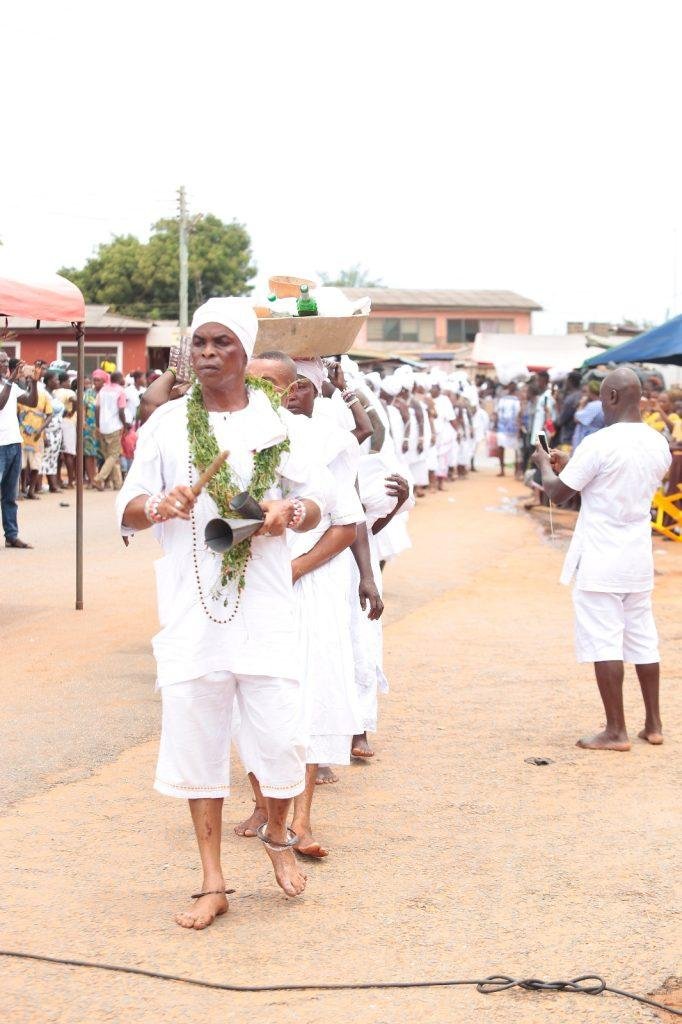
The second and third will also follow the next Tuesday after each other.
The festival is a veneration of the ancestral deity, Lalue, and the first is held to honour her memory.
The final celebration is often taken into the lower side of Prampram, where the “Kplemi” or drum is lowered into the sea.
Prior to that, an appropriate customary rite will be performed by the Chief Priest of the Traditional Area, Nii Ayertey Charway Labia.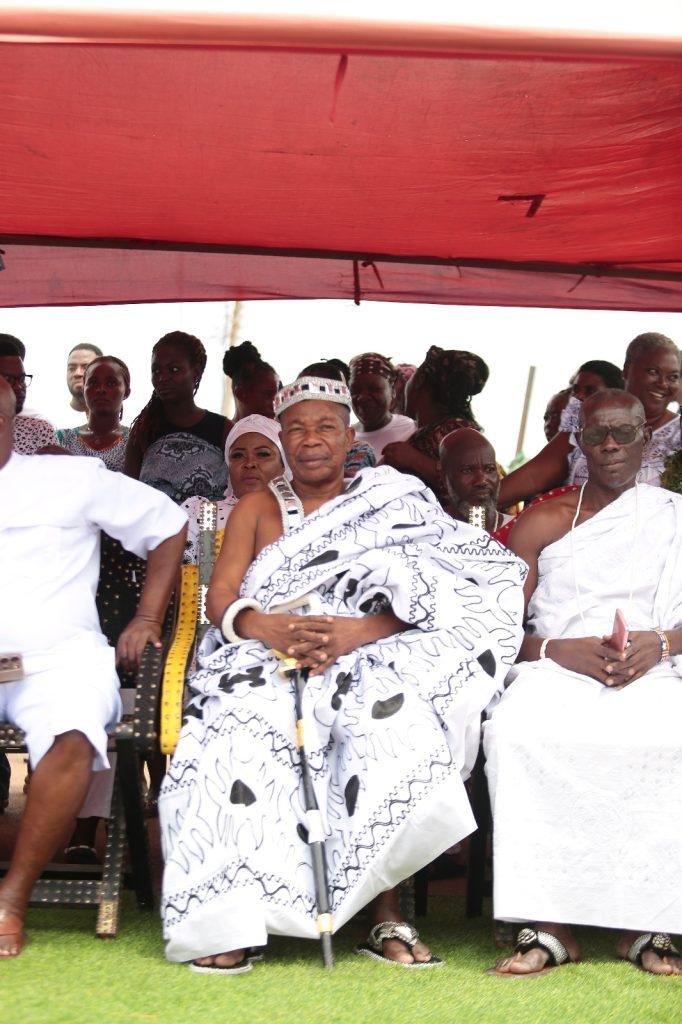
As part of an elaborate spiritual rites towards the festival, a symbolic visit to the ancestral forest was performed near the forecourt of the Prampram District Assembly.
The all-white spiritual cermoney was attended by members of the Prampram Traditional Council led by its President and the Paramount Chief Nene Tetteh Wakah III, who asked for blessings for the people of Prampram and its environs.
For the first time, the event was carried live on PramcitiTV, a social media news outlet based in the town, and streamed around the world.
Explaning the rationale behind the event, Nii Ayiku Obleh IV or Numlor Kpanyor, a Counsellor and prominent member from Kley, one of the four quarters making up Prampram, said the “Huemiyami” in Dangbe or the visit to the ancestral forest, offers the spiritual heads in the town an opporutnity to come together and seek God’s blessings.
He said spiritual fortification is an integral part of every human being and before the beginning of an important exercise as the Kpledomi, it is important the town goes before the Lalue deity, to seek the blessings of God for the town and its people.
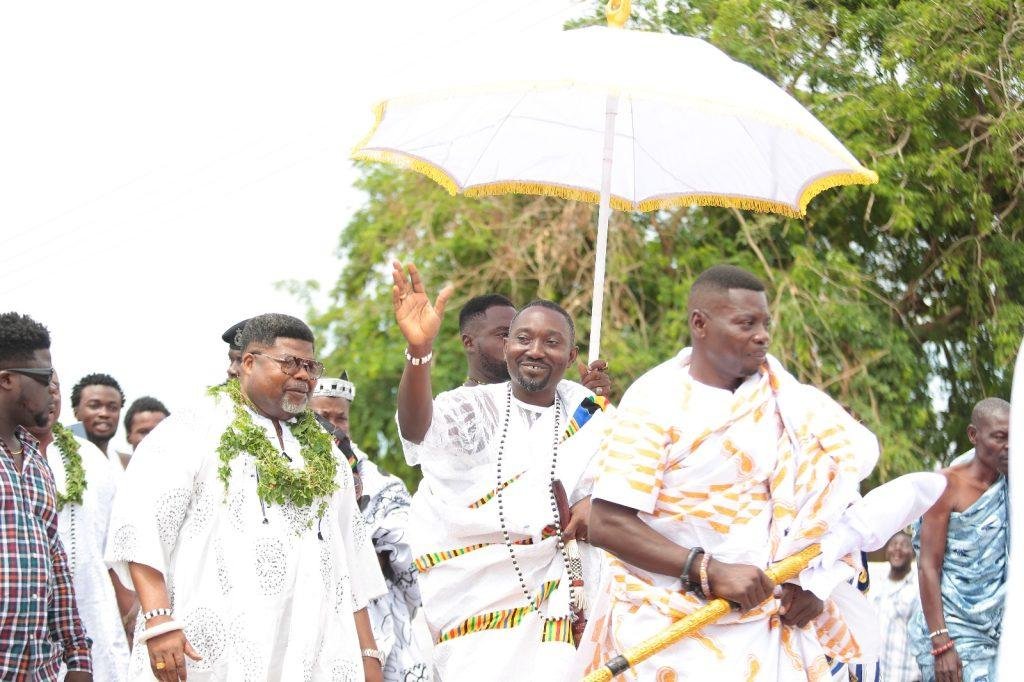
“We pray for the good of the land; for our fishermen, farmers, teachers, drivers, and any other professional to flourish in whatever they do,” he said.
“We also pray for those who are desperately seeking to have children to not only be blessed with them, but have the patience and wisdom to raise the children in the appropriate way,” he asserted.
According to him, what is done during the event is no different from what other religious bodies, especially the Christians do in their various places of worship.
Nii Ayiku Obleh IV also pleaded with natives of the town to actively participate in their festival since it is a true representation of their own identity.
The colourful ceremony was also witnessed by the traditional Queenmother Naa Osabu Abbey I, Asafoatsemeyi and Asafoanyemi, divisional chiefs from the traditional areas and members of the public.
Hot!
Focus on more pressing issues like Galamsey, not hate speech – Ellen Ama Daaku to Mahama
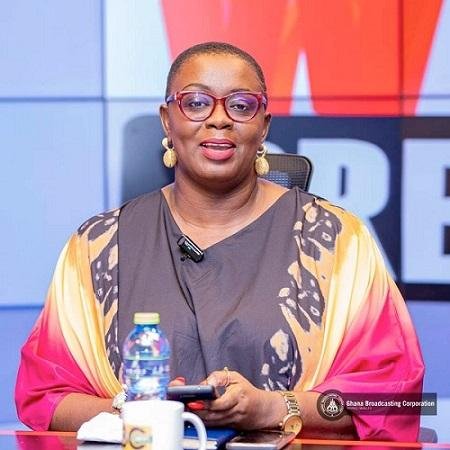
An aide to former Vice President Dr. Mahamudu Bawumia,Ellen Ama Daaku has advised President John Dramani Mahama to shift his attention from social media hate speech to more urgent national issues such as illegal mining.
Speaking in an interview, she noted that the President’s recent comments about tracking the IP addresses of people who spread hate speech were unnecessary.
According to her, President Mahama must first define what he considers to be hate speech before seeking to punish people for it.
Ms. Daaku argued that the President himself had benefitted from hate speech and social media attacks in the past when he was in opposition.
She said even during his time in government, he described his opponents and their tribesmen in unpalatable terms, which later drew complaints from former President Nana Akufo-Addo to the Catholic Bishops’ Conference.
She stressed that harsh criticism of leaders on social media should not automatically be considered hate speech, adding that former leaders, including former President Nana Akufo-Addo had all been subjected to it.
“He is only feeling what Nana Akufo-Addo went through for eight years,” she remarked.
While acknowledging the need to regulate misconduct online, Ms. Daaku insisted that going after social media activists should not be a priority.
She noted that many political activists, including herself, had been insulted and attacked online but never called for arrests.
She concluded that President Mahama should focus his energy on solving pressing problems such as galamsey and the economy instead of concentrating on critics on social media.
By: Jacob Aggrey
Hot!
Prof Alidu Seidu files nomination for Tamale Central seat
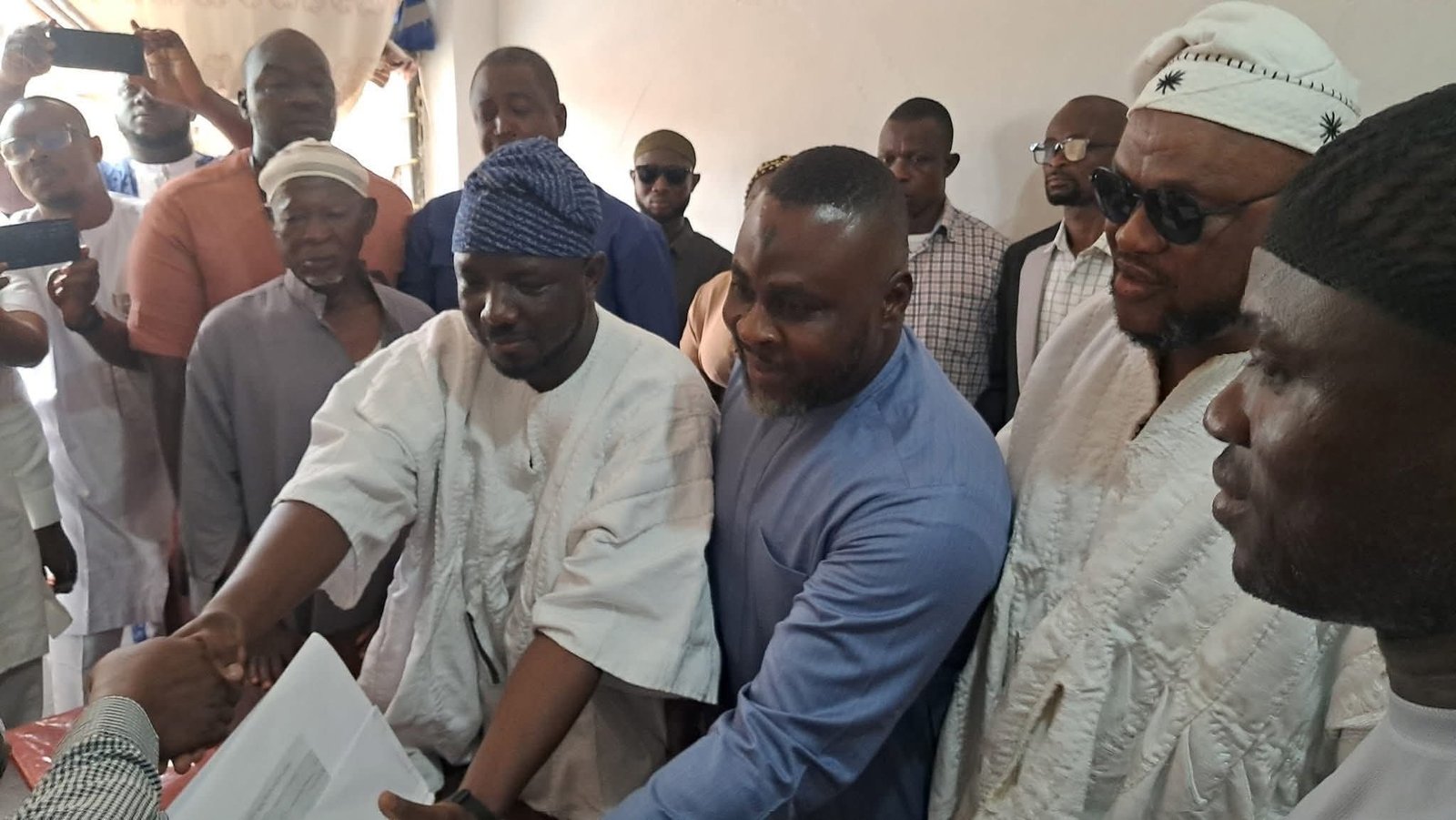
The newly elected parliamentary candidate of the National Democratic Congress (NDC) for Tamale Central, Prof Alidu Seidu, has submitted his nomination forms to the Electoral Commission.
As of 10:00 a.m. today, he was the only person who had filed to contest the seat.
Nomination of candidates will close at the end of the day.
Associate Professor and Head of the Political Science Department at the University of Ghana Legon, Prof. Alidu Seidu won the National Democratic Congress (NDC) parliamentary primaries in the Tamale Central constituency with a landslide victory.
The elections, supervised by the party’s Elections and IT Directorate in the Northern Region, saw Prof. Seidu poll 840 votes out of the total valid ballots cast.
His closest contender, Lawyer Hanan Gundadow Abdul-Rahaman, secured 536 votes.
The other aspirants could not make significant gains, with Dr. Seidu Fiter obtaining 44 votes, Aliu Abdul-Hamid 23 votes, and the rest recording fewer than 10 votes each.
In all, 1,500 ballots were cast, with 6 ballots rejected and 7 spoilt ballots recorded.
The results were signed and declared by Dr. Arnold Mashud Abukari, NDC Northern Regional Director of Elections and IT.
The National Democratic Congress (NDC) held parliamentary primaries in Tamale Central to choose a candidate for the upcoming by-election following the death of the sitting Member of Parliament, Dr. Ibrahim Murtala Mohammed. Dr. Mohammed, who also served as Minister for Environment, Science, Technology and Innovation, tragically died in a military helicopter crash in the Adansi Akrofuom District on August 6, 2025, alongside seven others.
His passing left the Tamale Central seat vacant, as required by Ghana’s 1992 Constitution.
The Electoral Commission has scheduled the by-election for September 30, 2025. While the NDC moved quickly to open nominations and vet aspirants, the New Patriotic Party (NPP) announced it would not contest the seat, citing the need to respect the somber circumstances and promote national unity.
By: Jacob Aggrey






